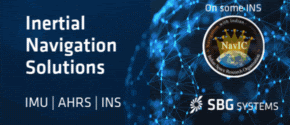| News Update | |
EASA partners with IATA to counter GNSS spoofing
The European Union Aviation Safety Agency (EASA) and the International Air Transport Association (IATA) announced the conclusions of a workshop jointly hosted at EASA’s headquarters to combat incidents of GNSS spoofing and jamming.
The workshop’s high-level conclusion was that interference with satellite-based services that provide information on the precise position of an aircraft can pose significant challenges to aviation safety. Mitigating these risks requires short-, medium- and long-term measures, beginning with the sharing of incident information and remedies.
Measures agreed by the workshop to make Positioning, Navigation and Timing (PNT) services provided by GNSS more resilient, include:
- Reporting and sharing of GNSS interference event data
In Europe, this would occur through the European Occurrence Reporting scheme and EASA’s Data4Safety programme. As this is a global problem, it is important, for a better and complete understanding, to join all the information available from reports by connecting the databases such as IATA’s Flight Data Exchange (FDX), or EUROCONTROL’s EVAIR. This topic will be included in the discussions among all interested stakeholders, which will be launched following this workshop.
- Guidance from aircraft manufacturers
This will ensure that aircraft operators are well equipped to manage jamming and spoofing situations, in alignment with EASA’s Safety Information Bulletin (SIB 2022-02 R2).
- Alerting
EASA will inform the relevant stakeholders (airlines, air navigation service providers (ANSPs), manufacturing industry and airports) about attacks.
- Backup
Aviation must retain a Minimum Operational Network (MON) of traditional navigation aids to ensure that there is a conventional backup for GNSS navigation.












 (No Ratings Yet)
(No Ratings Yet)





Leave your response!